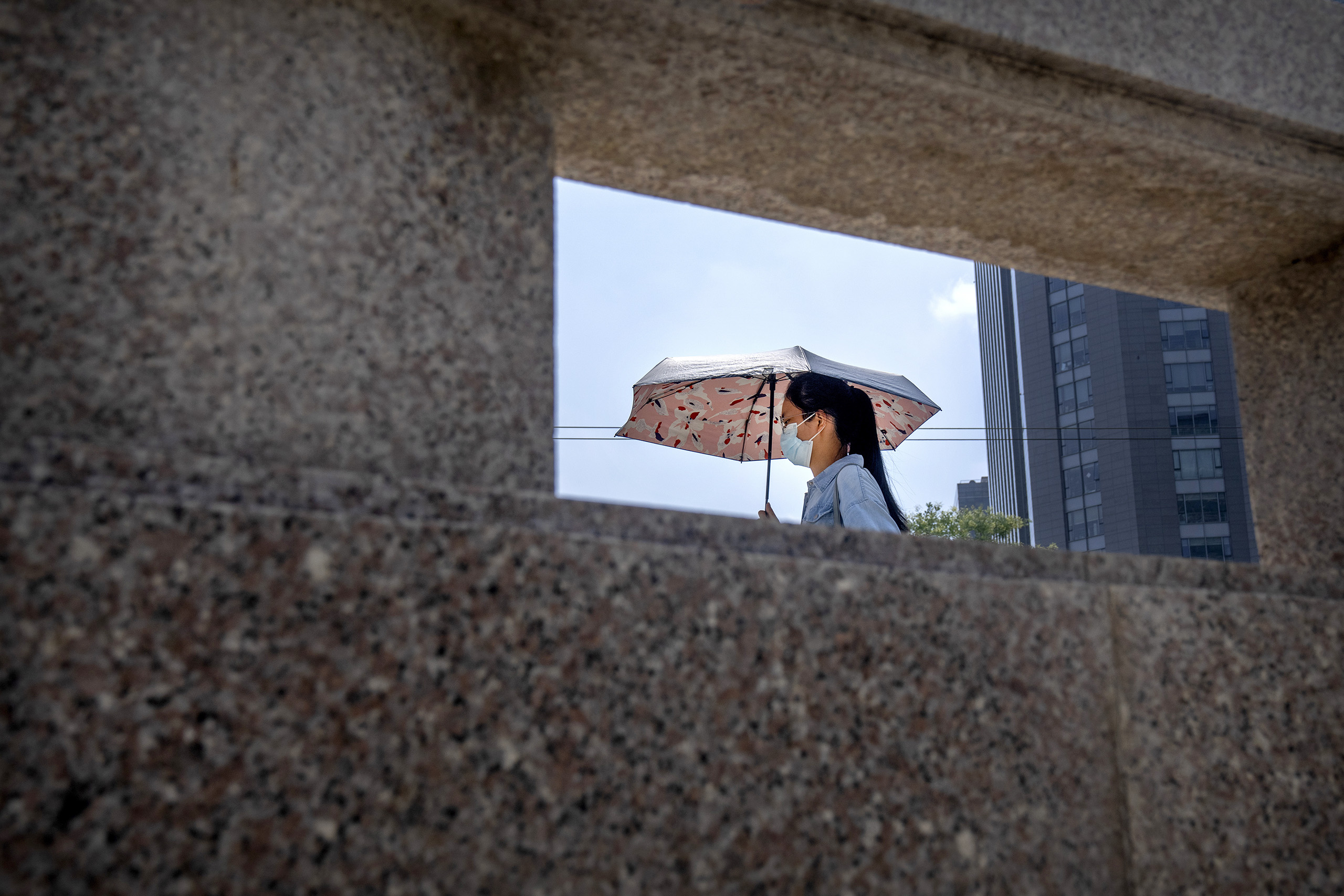The popularity of Jung Chang’s Wild Swans, first published in 1991, revealed a big market in the West for stories of women growing up in China. Such books subsequently became commonplace in English-language libraries. The authors were urbanite baby boomers who spent the 1970s learning from the peasants in the countryside and in the 1980s left China as soon as they could. They wrote for a Western audience hungry for knowledge about what had been happening all those years behind the bamboo curtain.
The stories Yuan Yang tells in her new book, Private Revolutions, concern women from a more recent time. She meets them during the Xi Jinping era, when the Cultural Revolution is a distant memory. China has long since become the world’s largest factory, its economy now second only to that of the United States. It is emerging as a leader in AI, a technology used to monitor its citizens more closely than was possible even under Mao. “Since the mid-2010s,” Yang writes, “deepening political repression and censorship has made it ever more difficult to gain intimate access to Chinese interviewees.”
The book’s narrative is structured around the lives of just four women, although more again make an appearance in its pages. Like Yang herself, they belong to the post-Mao generation. Three of the four — along with the mother of Sam, the fourth — were born in the countryside. Two, Leiya and Siyue, were “left-behind” children, cared for by their grandparents while their parents worked far away. For them, migration meant moving from the countryside to the city. Participants in the greatest wave of population movement in history, they have been bit-players in the transformation of China.
Their migration routes varied. June crams her way through to a local university somewhere in south China (precise home locations are never mentioned) and finally makes it to a job and a two-bedroomed flat in Beijing. Siyue climbs a step-ladder of central-Chinese places, from village through town to provincial city before finally, like June, making it to Beijing. Leiya simply follows in the footsteps of her parents and goes to Shenzhen, the booming heart of trade and industry in the Reform Era. Sam was born and grew up in Shenzhen, her parents belonging to an earlier cohort of rural migrants.
To the extent that these women journey from countryside to city, overcome obstacles to secure employment, work long hours for a pittance, seize the main chance, learn from experience and make courageous decisions about how to turn their lives around, their stories are similar to those told by journalist Leslie Chang in her 2008 book Factory Girls. Private Revolutions is not the page-turner Factory Girls is, but the thematic overlap between the two books is pronounced, and it is worth asking what Yuan Yang brings to the page that is new.
There is in fact much, beginning with her vantage point. Chang is consciously American. Chinese is her second language. Yuan Yang is British — indeed, was recently elected Labour MP for the new seat of Earley and Woodley. But she was born in China, her old home is still standing, and her grandparents, whom she visited every summer while growing up in far-away England, are still alive. Chang is a participant observer. Yang is at once more of a reporter and more of an insider. She left China when she was four. Yearning brought her back. It is difficult to avoid the impression that in tracing the lives of her four subjects she is exploring roads not taken.
Her cast of characters, too, is different. Chang’s factory girls didn’t yet have children, didn’t advance through the education system and didn’t become involved in politics. Readers of Private Revolutions, by contrast, get an up-close view of the education system: the exhausting struggle of migrant workers to get their children into a good school; the additional problem of doing so for children born out of wedlock; the capacity of ordinary people to take advantage of self-help education advancement; the fixation on university education; and finally some remarkable success stories. For some of these women, education was a way of bypassing the factory.
For two of Yang’s subjects, the national preoccupation with education also provides careers: June finds a position with an edutech company promoting online learning; the enterprising Siyue sets up an education company that delivers English-language tuition to simultaneously anxious and ambitious parents. The remarkable Leiya works her way up through the gruelling factory system, so powerfully described in Chang’s book, but finally steps outside it to become a community worker supporting migrant workers and their families. Among her undertakings is a project to encourage women to read at home to their children.
To some degree, Yang’s four women seem to live under the radar, propelled in different directions in accordance with their own decisions and ability to exploit available resources. But the state inevitably makes an appearance. The problem of hukou or residential registration, which bedevils the lives of all rural migrants, early emerges as a constraint on the women’s lives. Yang remarks at one stage that it was easier for her parents to acquire UK citizenship than it is for a rural migrant in China to gain urban registration and the privileges it offers in education and healthcare. Sam’s mother had achieved the near impossible, allowing Sam, of all these women, the greatest level of security and social advantage. A PhD helps smooth the way to a change of registration: June, a university graduate with a rural hukou, ponders in her twenties whether five more years of university is worth it.
The state features most obviously in the story of Sam, a born-again socialist and labour activist who rails against the travesty of socialism pursued by the contemporary Communist Party and finds herself marched off for interrogation by a posse of no less than ten (male) police. But it appears elsewhere, too. The government’s announcement of a new three-child family policy, a reminder of its intrusion into private life over many decades, meets with groans from women in the migrant village where Leiya works. They dread the pressure to have another child to help stem the country’s falling birth rate.
Yang’s focus on women is almost entirely to the exclusion of the men in their lives, who appear on the sidelines as bosses, business partners and occasionally fathers or partners. The free-wheeling personal lives of young women described in Factory Girls are evident again in Private Revolutions.
Siyue becomes pregnant to a boyfriend who subsequently leaves China, and her. She is thirty-one and decides to have the child, recruiting her mother, Sulan, to help. Sulan’s basic model of parenting is her brother-in-law, who would as soon hit his children as look at them; Siyue has to retrain her in modern parenting methods. She is glad to be a single mother: her friends find life with their partners burdensome. In fact, research on domestic violence in China — not a topic specifically mentioned in this book — shows authoritarian family structures intact, underpinning relatively high rates of intimate partner violence.
Leiya, too, has a child with her boyfriend, although later marrying him. She has to alter the date on her wedding certificate to avoid her child falling victim to the many bureaucratic penalties for children born out of wedlock. There are millions of these children in China, and it is only the precipitate decline in the birth rate that has encouraged a reversal of the government policy that punished unlicensed childbirth with fines.
June, meanwhile, displays attitudes towards marriage and children that are common among young, educated, professional women. She will probably marry her long-term boyfriend but doesn’t even want to think about children yet: maybe in her forties?
Written in plain prose, the book is organised chronologically, with the lives of the four women unfolding in alternating segments. This can make for disjointed reading experience, but you can always opt to choose your own adventure — as you well might in the case of Sam’s story — and skip some pages to find out what happened next. An extended preface, really a prologue, provides general factual information about Chinese politics and society. The writer makes no assumptions about readers’ prior knowledge, perhaps correctly so. One Cambridge professor has recommended the book as providing “a fascinating perspective on a country we will have to learn more about in the years ahead” — this about a country that has been recognised as a superpower since at least the turn of the century.
The perspective Yang offers is not absolutely clear. The women’s stories are presented dispassionately and she largely refrains from critical intervention. She writes in her preface about China’s increasingly difficult political situation, but having found a basis for optimism in the lives of these resilient women she ends on a note of hope. From the Buddhist monks of Emei Mountain she has learnt that the only constant in life is change. Below the mountain flows the Emei River, beside which she lived as a child. It calls her back to the land of her ancestors, for which she wistfully desires better outcomes than seem to her likely under the present regime. •
Private Revolutions: Coming of Age in a New China
By Yuan Yang | Bloomsbury | $34.99 | 320 pages




